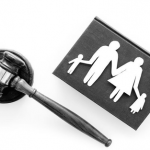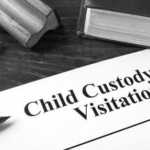On August 25, 2017, I authored a blog discussing minor guardianships occurring in Juvenile Court. Specifically, I outlined the process for obtaining a minor guardianship when the fitness of a parent is at issue. If you missed it, you can find it here. As I discussed in that blog, minor guardianships can proceed through District Court or Juvenile Court. What happens when a minor’s parents are deceased, or their parental rights are terminated, or suspended under other circumstances? In this blog article, I will discuss minor guardianships that proceed according to the provisions contained in the Uniform Probate Code.
The Specifics
The Uniform Probate Code contains a section entitled “Guardians of Minors,” and In re Guardianship of J.S.L.F. explains that minor guardianships under this specific section cannot be granted when a minor has a living parent who is entitled to custody. The North Dakota Supreme Court explained that the guardianship provisions of the Uniform Probate Code are not meant to circumvent the protections afforded to natural parents and the minor under the Uniform Juvenile Court Act.
As I stated above, an individual can only petition for a minor guardianship under the Uniform Probate Code when one of the following occurs: when the minor’s parents are deceased; when the minor’s parents rights have been terminated; or when their parental rights are suspended by other circumstances.
The first two situations are obvious; however, what does “suspended by other circumstances” mean? In In re Guardianship of J.S.L.F., the North Dakota Supreme Court determined that suspended by other circumstances means that “some set of circumstances which deprives a parent of the ability to accept the rights and responsibilities of parenthood.” For example, if a parent is incarcerated, they are not able to accept the rights and responsibilities of parenthood and a minor guardianship under the Uniform Probate Code may be appropriate.
If one of the foregoing circumstances is met, then the individual seeking appointment will file a Petition for Guardianship of Minor and request that the Court appoint them as guardian. This Petition must be filed in District Court, not Juvenile Court, where the minor resides or is present at the time of filing.
The Hearing And Beyond
Once the Petition for Guardianship of Minor is filed, the Court will set a hearing. Notice of this hearing must be provided to the minor if they are 14 years of age or older, and to the individual who has had care and custody of the child for the 60 days preceding the petition, and any living parent of the minor. At this hearing, the Petitioner will want to provide the Court with sufficient proof that they are the individual that should be appointed. Specifically, the Petitioner will want to demonstrate their appointment is in the best interests of the minor.
While there is no priority of appointment when petitioning for a minor guardianship if a minor is 14 years of age the Court shall appoint a person nominated by the minor unless the Court specifically finds that person’s appointment is contrary to the best interests of the minor. If the Court finds that the minor’s best interests will be served by the appointment of the Petitioner, then the Court will appoint the Petitioner as the minor’s guardian. However, if the Petitioner does not meet the burden then the Court can dismiss the proceedings altogether, or appoint another individual petitioning the Court for guardianship of the minor.
Once the Court has appointed a guardian of the minor, the appointed guardian will accept the appointment by executing Letters of Guardianship. The Letters of Guardianship are important legal documents and outline your rights and responsibilities as the guardian, which are also identified in North Dakota Century Code Section 30.1-27-09(1)-(4). Guardians are obligated to file an annual report with the Court. This annual report provides the Court with an update on the status of the minor, and the necessity of the guardianship.
If a minor’s guardian dies, resigns, or is removed as the minor’s guardian, then their appointment ends. However, the Court must approve a guardian’s resignation before it is effective. The appointment of a guardian also terminates if the minor dies, is adopted, gets married, or reaches the age of majority. If the minor or another individual wishes to terminate the guardianship, then a petition must be filed with the Court, and the Court will determine if termination of the guardianship is appropriate.
Conclusion
As you can see, minor guardianships are complicated proceedings that can be commenced in either the Juvenile Court or District Court. Typically, minor guardianships need to be addressed fairly quickly, because they involve the care of a minor. Minor guardianships have significant legal consequences for all parties involved, and it is important that you are informed and aware of all possible outcomes. If you are concerned with a minor in your life, contact us and we’ll help you determine whether a minor guardianship is your best course of action. There are two of us at SW&L who handle exclusively family law cases, including minor guardianships and custody related issues. If you have a family law issue that you would like to discuss, please do not hesitate to call 701-297-2890.
The information contained in this article and on this website is for informational purposes only and not for the purpose of providing legal advice.










